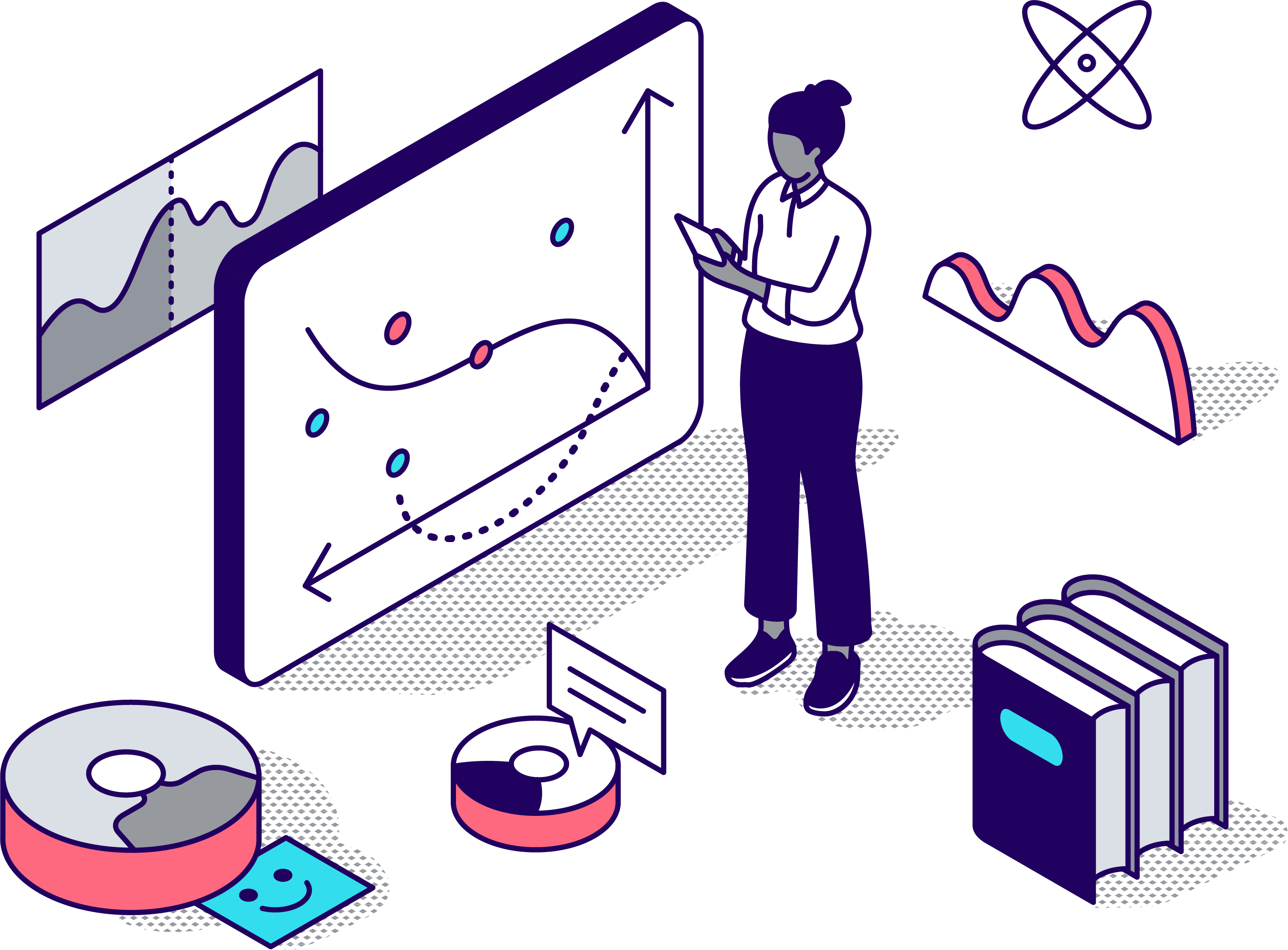A community of educators, researchers, and designers working together to make learning engaging and meaningful for all students.
Our Mission
CourseKata is a community of educators, researchers, and designers that creates, implements, and continuously improves evidence-based learning experiences that enable all students to successfully learn challenging concepts and better understand the world.
Our Future
With an initial focus on statistics and data science, CourseKata aims to become a leader in research, design, and implementation of educational programs for flexible, transferable learning in complex domains.

The CourseKata Story
CourseKata was founded in 2017 by a group of learning scientists from UCLA and Cal State LA with an interest in understanding and improving how students learn difficult concepts. Employing our Better Book approach, we foster communities of educators, researchers, and designers working together to build and improve effective learning experiences for students. CourseKata breaks down silos and creates a space where diverse expertise converges to make learning more effective and relevant.
Our first implementation of this unique research and development approach is in the domain of statistics and data science in colleges and high schools. Our online interactive textbooks have been used at more than 50 institutions worldwide and more than 1,000 incremental improvements have been made to the materials.
What Makes CourseKata & The Better Book Approach Different
Our team of educators, technologists, and researchers dedicate their work to improving the teaching and learning of difficult subjects so that all students can thrive.
01
CourseKata is visionary
We take a fresh look at subjects that are hard to teach and difficult to learn, develop innovative approaches grounded in research, and build solutions that haven’t been built before. We don’t replicate what everyone has been doing for decades.

02
CourseKata is confident
We use data and research-based knowledge of how students learn to build and continuously improve interactive textbooks and supporting materials — we believe deeply in our mission.

03
CourseKata is collaborative
It takes “all hands on deck” to meet the challenges faced by educators today. We engage seriously with educators, innovators, and researchers to find solutions that work.

Our Research & Publications
The Better Book Approach for Education Research and Development
James W. Stigler, Ji Y. Son, Karen B. Givvin, Adam Blake, Laura Fries, Stacy T. Shaw, Mary C. Tucker
Practicing Connections: A Framework to Guide Instructional Design for Developing Understanding in Complex Domains
Laura Fries, Ji Y. Son, Karen B. Givvin, James W. Stigler
Modeling First: Applying Learning Science to the Teaching of Introductory Statistics
Ji Y. Son, Adam Blake, Laura Fries, James W. Stigler
Teaching Statistics and Data Analysis with R
Mary C. Tucker, Stacy T. Shaw, Ji Y. Son, James W. Stigler
Our Funders
As a nonprofit, we are immeasurably grateful to the foundations and institutions who fund our work. Our advancements in teaching and learning would not be possible without their support and belief in our mission.






Have Questions?
Questions about our work? We’re here to help.
